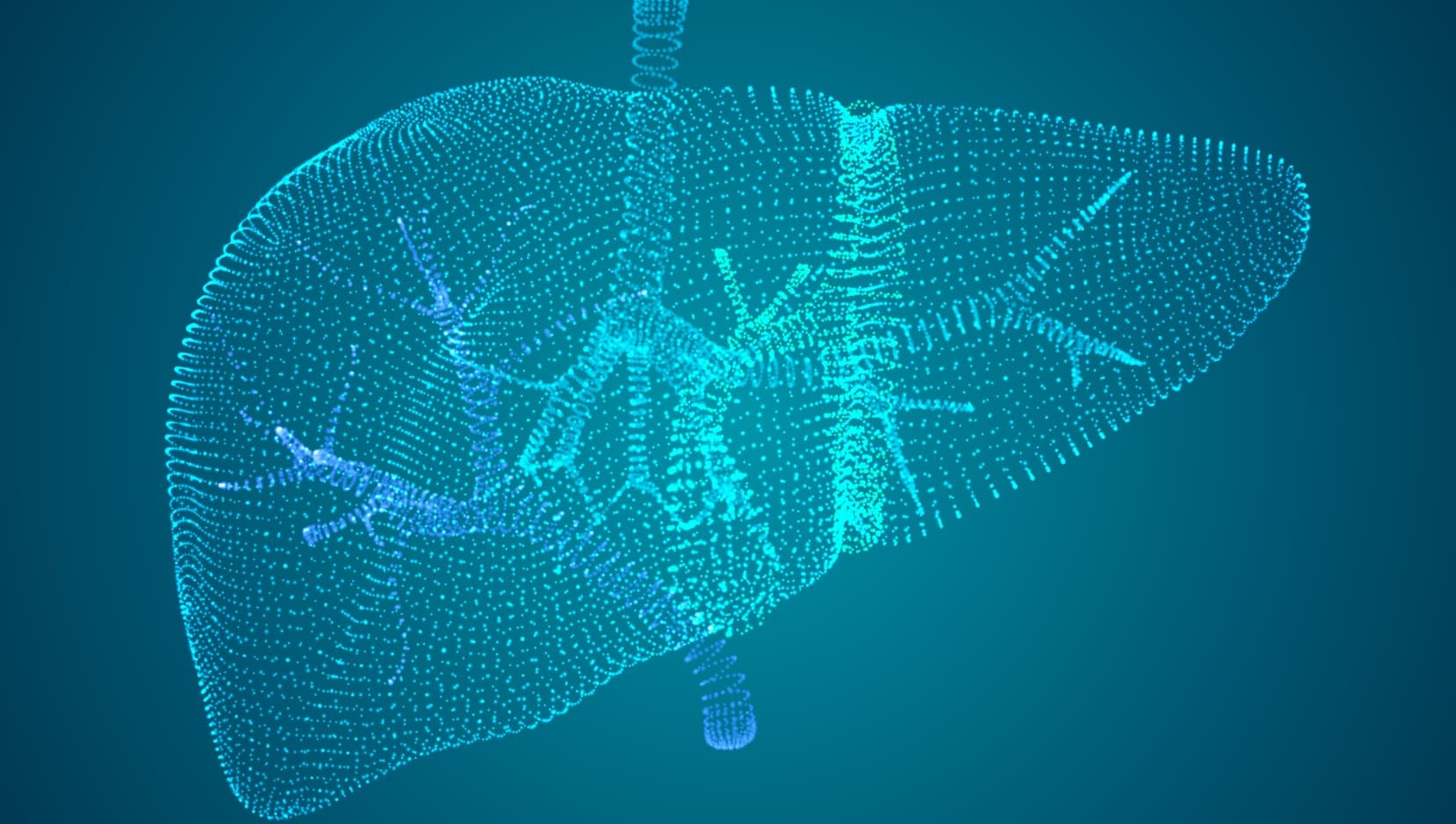What to know about liver failure, liver transplants and living donation at UChicago Medicine

The University of Chicago Medicine is known worldwide for its liver transplant expertise.
Its transplant team performs more than 100 liver transplants per year and routinely handles complex cases and multi-organ transplants – with higher-than-expected transplant rates and reduced mortality rates while on the waiting list.
UChicago Medicine performed the world’s first successful living donor liver transplant in 1989, using part of a healthy person’s liver. Since then, it has become one of the largest living donor transplantation programs in Illinois and continues to do groundbreaking research on treatments, medications and future therapies, including one with genetically modified pig livers.
As one of the leading transplant oncology centers in the world, liver cancer patients receive individualized, multidisciplinary care from surgeons, hepatologists, medical and radiation oncologists, as well as interventional radiologists.
UChicago Medicine is also the only transplant center in Chicago to have a liver dialysis machine that can support patients as they await a transplant.
Patients often have questions about the liver transplantation process, and we're here to help. Below are some additional, important facts about liver failure, liver transplant and liver donation.
Why would someone need a liver transplant?
In adults, it’s most commonly due to chronic liver failure caused by cirrhosis, a scarring of the liver. That could be from hepatitis B or C, steatotic (fatty) liver disease, toxin-related liver disease, alcoholic liver disease or autoimmune liver diseases.
Other reasons include acute liver failure (from viral hepatitis, hepatitis A, adenovirus, herpes virus or influenza), toxin-related liver failure or malignant causes, such as cancers that arise or have spread to the liver.
Is a liver transplant the only treatment for liver failure?
For someone with liver failure caused by end-stage liver disease, when the liver has shut down and can no longer perform important functions, there are no other options.
There are varying severities of liver failure:
- In most cases, the liver disease is “compensated,” meaning the patient may lead an almost normal lifestyle or be able to live with a moderate degree of liver failure.
- When liver disease progresses, patients may “decompensate” and could die from complications such as kidney failure, variceal hemorrhage or sepsis — so a liver transplant might be necessary.
How are liver donors and recipients matched?
To ensure a successful transplant, matches are based on compatible blood type, and liver size and anatomy.
There are two types of donors: living and deceased. The most common living donor is a family member, but 90% of liver transplants are from deceased donors.
Can I get a liver transplant from a living donor?
UChicago Medicine’s transplant team encourages patients to find a living donor, if possible.
That’s because surgery can be scheduled before the onset of life-threatening complications that could occur while waiting for a liver from a deceased donor. It also assures the recipient receives a healthy portion of the liver with minimal damage, as the surgeries happen consecutively.
The percentage of the liver that is removed from the donor will depend on their age and size of the patient receiving the transplantation. In general, about 50% to 60% of the liver is removed when used in an adult recipient, or 25-30% of the liver when the recipient is a child.
For the living donor, their function and life can be back to normal within a few weeks. Both the donor’s and recipient’s livers will regenerate and function normally a few months after the surgery.
Who qualifies to be a living liver donor?
To qualify, a person must be in good health, between the ages of 18 to 65, and have a compatible blood type with the recipient.
Potential donors must undergo a thorough evaluation of their liver anatomy and overall health. This can only be done once the intended recipient is placed on the transplant waiting list. Costs for evaluation and donation are generally paid for by the recipient’s insurance company.
How long does it take to get a liver transplant?
It depends on whether the donor is living or deceased. For living donors, the wait time depends on availability and compatibility, but it can be as short as a few weeks.
The deceased donor waiting list is often longer. It depends on the recipient’s blood type, age, size and their Model for End-Stage Liver Disease (MELD) score, which measures the severity of their illness. Patients with higher MELD scores have shorter wait times.
Recipients with blood types O and B have the longest waiting times, while those with blood types AB and A generally have shorter waits. Smaller adults and children typically wait longer for a donor, since there are fewer small-sized donor livers available.
UChicago Medicine has several options using perfusion machines to assess and even rejuvenate livers that might end going unused, to provide expanded availability of deceased donor livers for our transplant patients.
What is the success rate of liver transplants?
At UChicago Medicine, 87% of patients are alive with a functioning transplant three years after transplant. This is slightly better than the national average of 86%. The risk of dying in subsequent years depends on the nature of the liver disease, the condition of the patient at the time of transplant, the age of the recipient and other comorbidity factors, such as diabetes, heart and lung disease and other post-transplant complications.
If I’ve been turned down for a transplant or told I’m not eligible, should I seek out a second opinion?
Yes. Each center might have slightly different protocols for things like alcohol abstinence, body weight, age or other medical issues, such as heart, lung and cancer conditions. UChicago Medicine has very innovative protocols for all these areas, developing expanded criteria for transplant patients commonly declined by other centers.
Does a patient have to stop drinking alcohol before transplant?
Most centers require a patient to stop drinking for six months before a transplant. But we’ve modified our criteria to consider patients regardless of their alcohol history, as long as other criteria are met. Some of our patients have been turned down by multiple centers before finding one such as ours that considers them even if they haven’t met the six-month criteria.
Can someone with heart and/or kidney disease still be eligible for liver transplant?
Absolutely, yes. UChicago Medicine is one of the most aggressive and successful at multiple-organ transplants. For example, we have the largest volumes of combined heart/liver/kidney transplants in the world, and our specialists are globally known for treating specialized conditions.
How long is recovery after liver transplant surgery?
Critically ill patients, who need blood pressure, breathing and kidney support, may be hospitalized for weeks and might need to go to rehab centers. Healthier patients can return home in about a week and a half but will still need to be seen in clinic once a week for the first few months.
What medications are required after a liver transplant?
There are many, but patients eventually get down to a few pills a day. Immunosuppressive drugs like Tacrolimus or prednisone help keep the body from rejecting the liver. We have dedicated transplant pharmacists who work with patients and their families.
Do you have to take antirejection drugs for life?
Generally, patients will require some low-level antirejection medication for the rest of their lives.
What lifestyle changes are needed after a liver transplant?
After a period of recovery, patients should be able to do anything they want to do, but they need to take their medications, follow up with their transplant specialists and get good healthcare.
They don’t require isolation from the public and they won’t have new restrictions on their activities. A healthy lifestyle will allow them to engage in normal activities.
Can you drink alcohol after a liver transplant?
Alcohol, like any other drug or medication that can injure the liver, should be avoided.
Liver Transplant Program
With the most established and experienced liver transplant program in the Midwest, our experts offer patients a leading-edge approach to diagnosing and treating chronic and acute liver diseases.
Learn more about our transplant program
John Fung, MD, PhD
With more than 30 years of experience, John Fung, MD, PhD, is a renowned leader in the field of organ transplantation, including liver, kidney, pancreas, islet and intestinal transplantation.
Learn more about Dr. Fung
Rolf Barth, MD
Dr. Barth performed the first scarless single-port laparoscopic donor nephrectomies (kidney removal), and has gone on to successfully complete this procedure over 500 times.
See Dr. Barth's physician profile